Illustration of Jean Quan by Gary Bedard.
Last Monday, Oakland’s mayor Jean Quan ordered the forcible eviction of the Occupy Wall Street movement’s Oakland encampment, which had been situated directly outside of her office at City Hall off and on for the past two months.
Wakened in the early morning by an army of police outfitted in riot gear, demonstrators remained peaceful as more than 100 tents were destroyed, and dozens of arrests were made. The action precipitated the resignation of two of Quan’s top staffers, bringing the total resignations in response to her handling of Occupy Oakland to three. It also deepened this writer’s disappointment and embarrassment over the actions of someone who, not too long ago, could have been described as embodying the best of the Asian American movement of the '60s and '70s.
As an undergraduate at UC Berkeley, Quan was intensely involved with the Third World Liberation Front’s (TWLF) radical efforts to create ethnic studies programs, ultimately spearheading the establishment of the Asian American Studies program there. After graduating, she continued her activism in New York's Chinatown, and, much later, joined Oakland School Board, and City Council, where she fought for a variety of progressive causes. Last summer, when large-scale demonstrations broke out in protest of a lenient verdict handed down to BART police officer Johannes Mehserle -- who was on trial for shooting Oscar Grant while the latter was face-down and restrained -- it was hardly a surprise when Jean Quan joined in a human chain to protect demonstrators from riot police. She was just dusting off an old skill set.
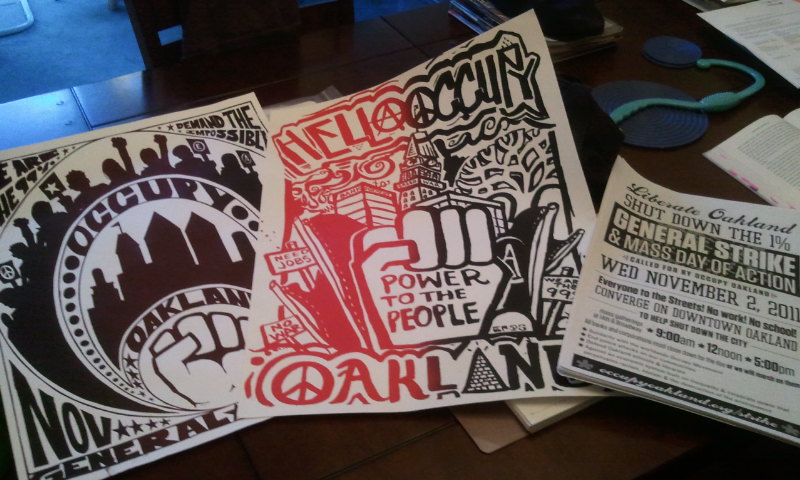
So, when Quan won the mayor’s seat last November, I and so many others were overjoyed not only that she had become Oakland’s first Asian American and first female mayor, but that Jean Quan the progressive activist had become mayor.
Why she decided to step onto the other side of the riot shield is a question that cannot be adequately answered now.
My disappointment and embarrassment for her aside, it would be unfair to characterize Quan as a tyrant, or unequivocally beholden to business and police interests. In fact, it's been precisely her ambivalence over Occupy Oakland that has provoked resignations and her alienation from city agencies -- especially the Oakland police. She has explicitly expressed support for the movement (as, to be sure, have so many mayors who also justified their endorsement of excessive force in the same gesture), and her husband (Floyd Huen, also a TWLF alum) and daughter have been considerably less ambivalent in their support of it. We might even take the divisions within the Quan family as a kind of parable of the American left.
Monday's eviction was, of course, not the first. Quan’s first attempt at permanently dismantling the camp came early in the morning of October 25, when she authorized hundreds of police officers to evict its residents with a “shock and awe” strategy. In just a few hours, they cleared and destroyed over 150 tents, as well as an elaborate system of services that had maintained the encampment for more than two weeks: including a fully operational kitchen, medic tent, library and children’s area.
Later that afternoon, Occupiers marched from the steps of the city’s Main Library (which librarians, in solidarity, refused to close, in defiance of police orders) back to the encampment site with the intention of re-occupying it. This resulted in large-scale confrontations with police, in which the latter employed an excessive amount of force that resulted in serious injuries, including the critical wounding of Iraq war veteran Scott Olsen. Widely circulated videos depict a police officer tossing an exploding tear gas canister directly at Olsen’s head, after he had already been rendered unconscious by a projectile fired by police moments beforehand.
In a painful example of precisely the kind of tragic irony that the Occupy movement is trying to highlight, that same night, just a few miles from the thick of the demonstrations, Oakland’s school board voted to close five elementary schools in an attempt to save $2 million. The cost of the police actions for that day alone ran well over $1 million.
Along with the cost of last week’s actions, the total cost of police services rose to over $1.5 million. Considering how Occupy Oakland has made every attempt at cooperating with health and safety standards, and how its demonstrations have been largely peaceful, the costs seem not only unjustified, but somehow idiotic. I say “idiotic,” because it reminds me of that paradigmatic scene of idiocy from Steve Martin’s film The Jerk, when a barrage of gunshots fired at the main character miss him, hitting piles of cans instead, and which we can paraphrase like this: “They hate the tents! Stay away from the tents!”
Quan’s involvement in the decisions of October 25 prompted international condemation, as well as ridicule by the likes of Jon Stewart and Keith Olbermann. But perhaps the most damning criticism came from a group of Asian American Oakland residents who were just as excited about her election as I was. A few days after the eviction, they circulated an open letter in which they wrote: “It is a sad day. We once believed you to be an ally to low-income, communities of color; to progressive politics; to real democracy. What happened?”
What happened?
I’ve been following Occupy Oakland since it pitched its first tent on October 10. Unfortunately, with an infant son vigorously engaged in his own protest against sleep, it was impossible to join the encampment, and difficult to spend a significant amount of time at Frank Ogawa Plaza (renamed Oscar Grant Plaza by the Occupiers). Nonetheless, my wife and I donated what we could, and I stayed involved via Twitter -- something that, prior to this Spring, would have sounded ridiculous.
Even with my meager involvement in virtual and meat-space, I have never in my lifetime seen the American Left so invigorated, so hopeful -- or so unified. The movement certainly has its problems, not least of which being its demographics (although as our own Tammy Kim reports, Zuccotti Park is an exception). And with the onset of winter -- and the Bay Area’s own rainy version of that mythical season -- the question of demands, thus far strategically deferred, is becoming all the more pressing. If there’s anything we’ve learned, however, it’s that the movement’s astonishing resilience is generated more by its form than its content. And it's not like Occupiers aren't unaware of their contradictions; they're working through them slowly and earnestly.

Occupy Oakland shuts down the Port of Oakland during the November 2 general strike.
As encouraging as the past two months have been, the tragedy of Mayor Quan stands as a sobering reminder of what a movement like Occupy risks becoming as time wears on. She is precisely the kind of future the movement resists when it militates against co-optation.
In a way, Quan also signals the incoherence of “Asian American” as a radical coalition. No other public figure dramatizes more powerfully just how distant those heady days of action and idealism have become.
This may seem like an odd claim to make, with Asian Americans so much on the rise just across the Bay in San Francisco. Two weeks ago, Edwin Lee became the first elected Asian American mayor of that city, making him the latest instance of an ascendant and formidable wave of Asian American political influence there. But that influence flows from a largely Chinatown-centered voting bloc that is either more closely associated with the Chinese-language press and China's international political dynamics, or would more readily identify as Chinese and American than Asian American.
Also consider the example of Occupy Oakland’s renaming of Frank Ogawa Plaza to Oscar Grant Plaza, a deliberate displacement of Asian American politics for a narrative of white-on-black state violence.
Ogawa, a gardener by trade, was Oakland’s first Japanese American and longest-standing city council member, as well as an internee at Topaz Camp. He was known for his moderation and record of breaking racial barriers. It’s possible that his conservative politics would have clashed with the Occupy movement’s values -- but that doesn’t seem like a strong enough reason. What’s more telling is the startling lack of commentary on this issue (with very few exceptions).
The fact that this move could be passed over in silence is perhaps the most poignant epitaph to a coalition that once I so lovingly knew.
But, alas, Quan herself is the best evidence of what I want to call, polemically, “the Death of Asian America.” The idea of the “Asian American” was born in the '60s with Quan and her Third Worldist comrades. If it still had any life in it, it died this fall, along with her political career. To use a clunky sociological term, Quan has become a symbol of Asian America's broader “embourgeoisiement” over the past forty years.
Rather than despair, I believe that, at this moment, we should gauge our optimism against the endurance of the Occupy movement itself. We need to risk it.
Help them through the winter.
What hope is left for us is to be found in solutions that haven't been formulated yet. We need new coalitions. We don't yet know what they are, which is why we need the space -- indeed, the interruption -- to think these things through clearly and honestly. It's precisely that space and time that the Occupiers are putting their bodies and selves on the line to create and defend.
Those chains of students linking arms and getting pepper sprayed by the officer John Pikes of the world aren't defending tents, or the spaces they occupy. It's ridiculous to think so. They're defending our time to think.
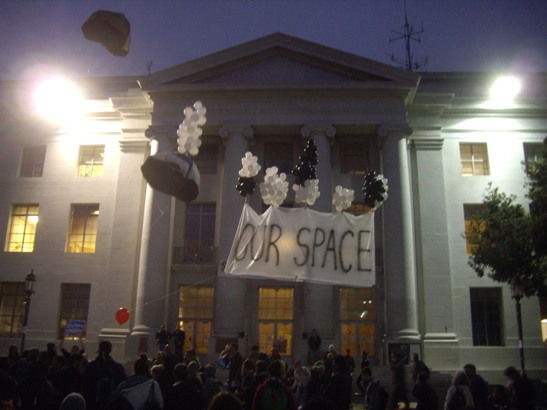
Floating signifiers. A scene from Occupy Cal. Photo by Aaron Bady.
Update, 11/22/11
It's been brought to my attention that there has, indeed, been lively discussion on the Frank Ogawa/Oscar Grant renaming issue.
The best commentary on it is from the artist Kenji Liu, who designed two posters -- one with Ogawa's image, and the other with Grant's -- emblazoned with the caption "Memory is Solidarity." These were widely distributed during the Occupy demonstrations and general strike at the beginning of November. Liu writes:
For me, this is the crucial point: that solidarity and a "complex analysis" of capitalism are more fundamental than the identity politics at the heart of the renaming issue. That doesn't of course make Asian American-specific or black-specific politics disappear; it forces them to incorporate a broader analysis than identity politics can accomodate.
In the case of Oscar Grant, the discourse has evolved from outrage over a long history of white-on-black violence, to a critique of police force, to a critique of the police state, and then to a critique of the police state's inextricabile link to capitalism. This evolution, for me, is what I hope will be one of the most enduring legacies of the OWS movement. And what I believe we need to do is risk accepting that broader critique, even if that means letting go of some aspects of those old identity-based coalitions.
* * *
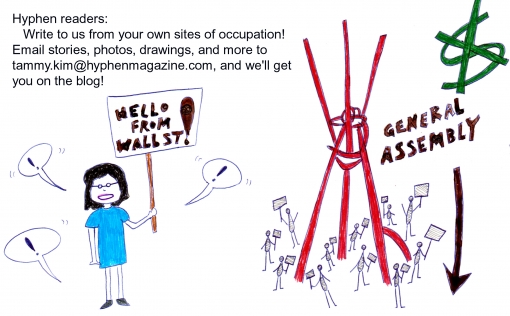







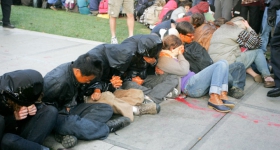
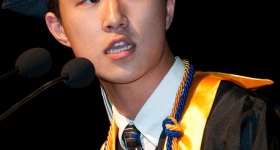

Comments
Eva, I totally agree and your points are spot-on. The contemporary inaccuracy of that conflation is precisely my point.
"Give it some time and see where Occupy can take our society to in a few years."
Hear, hear.
Dear "I love Oakland" --
I love Oakland, too, and I certainly meant no disrespect.
The provocation and polemic was explicitly intentional, however, so I'm glad for your response. Thanks especially for the link to Kenji Liu's really wonderful and important post. It's unforgivable that I failed to discover it.
I'm pretty sure you and I support the OWS movement with equal passion, and I'm definitely in agreement with your point on the needlessness, and opportunism from some quarters, of recalling Quan.
What I want us to consider, however, is that perhaps it's appropriate to let go of that particular brand of identity-driven radicalism that originated in the '60s, and risk the new coalitions that may arise from OWS. For me, one of the most encouraging aspects of OWS is how it's reorienting all these old coalitions and movements to a critique of capitalism. That's precisely Kenji's point at the end of his article, and it's absolutely fundamental.
The key is letting go. I don't know precisely what I mean by that, to be honest, but at the very least it means the mourning of something -- that is, the acknowledgment of its memory and its passing.
What my argument boils down to is that we need to risk a belief that the new coalitions that arise from OWS will be far more significant and impactful than the TWLF, or its kindred movements. That Jean Quan, in other words, will stand as a cautionary tale rather than a prophecy.